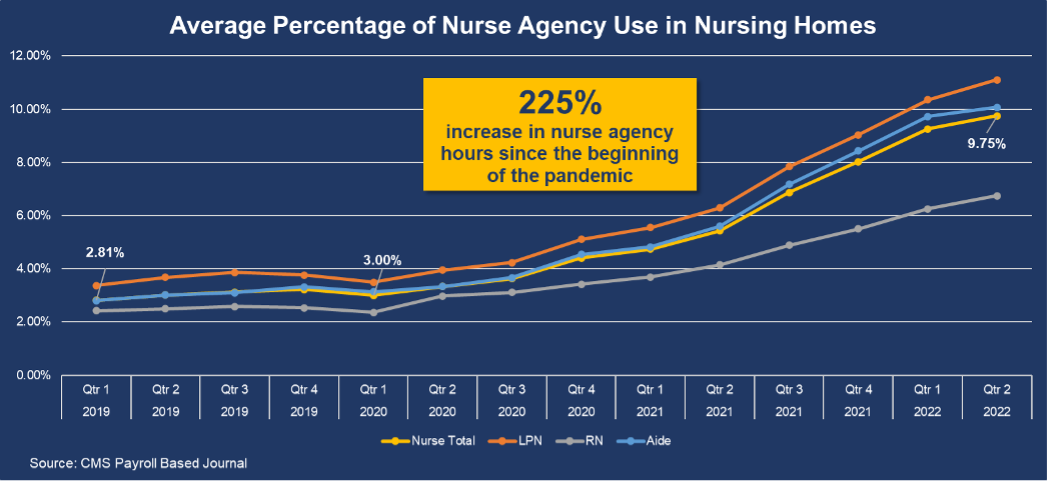The Biden administration is considering a federal minimum staffing mandate for nursing homes, which would impose arbitrary staffing ratios that would be impossible for providers to meet considering the current labor shortage and lack of government funding. More importantly, many experts do not believe staffing minimums are the best approach to improve resident care nor do they solve the root causes of the industry’s workforce challenges.
A federal staffing mandate has been considered by policymakers in the past. The Centers for Medicare & Medicaid Services (CMS) under the Obama administration previously warned how a “one-size-fits-all” staffing minimum would not improve quality of care in nursing homes. In 2016, they
said:
“We continue to be concerned that a mandated ratio could result in unintended consequences, such as staffing to the minimum, input substitution (hiring for one position by eliminating another), and task diversion (assigning non-standard tasks to a position), as well as stifling innovation, and would not result in the improved quality and person-centered care that we seek in facilities …
“… [W]e do not agree that we should establish minimum staffing ratios at this time. As discussed in the preamble to the proposed rule, this is a complex issue and we do not agree that a ‘one size fits all’ approach is best.”
One of the potential unintended consequences of minimum staffing requirements is the increased use of agency staff. As nursing homes continue to struggle to recruit and retain full-time staff, facilities may feel pressured to hire temporary staff to fill shifts and meet quotas. However, the use of agency staff is costly and is associated with poorer care.
Nursing homes are already grappling with a historic labor crisis, as more than
200,000 caregivers have left the field since the beginning of the pandemic. Federal data shows that due to staffing shortages, the proportion of nursing hours clocked by agency staff have more than tripled since early 2020 and continues to increase. A federal staffing mandate would compound this growing trend.

Nursing homes are eager to hire more dedicated, full-time caregivers, but they cannot do it alone. And a federal staffing mandate could require an additional
187,000 nurses and nurses’ aides at a time when facilities are unable to find workers.
“A federal staffing mandate without the necessary workforce available and full funding would have negative consequences for nursing home residents,” said Holly Harmon, RN and Senior Vice President of Quality, Regulatory & Clinical Services for the American Health Care Association (AHCA). “Policymakers should once again recognize that implementing a one-size-fits-all requirement is not the solution and instead prioritize resources and develop programs to rebuild the nursing home workforce. Lawmakers must invest in long term caregivers to ensure America’s seniors have access to customized care delivered by trained, devoted professionals.”